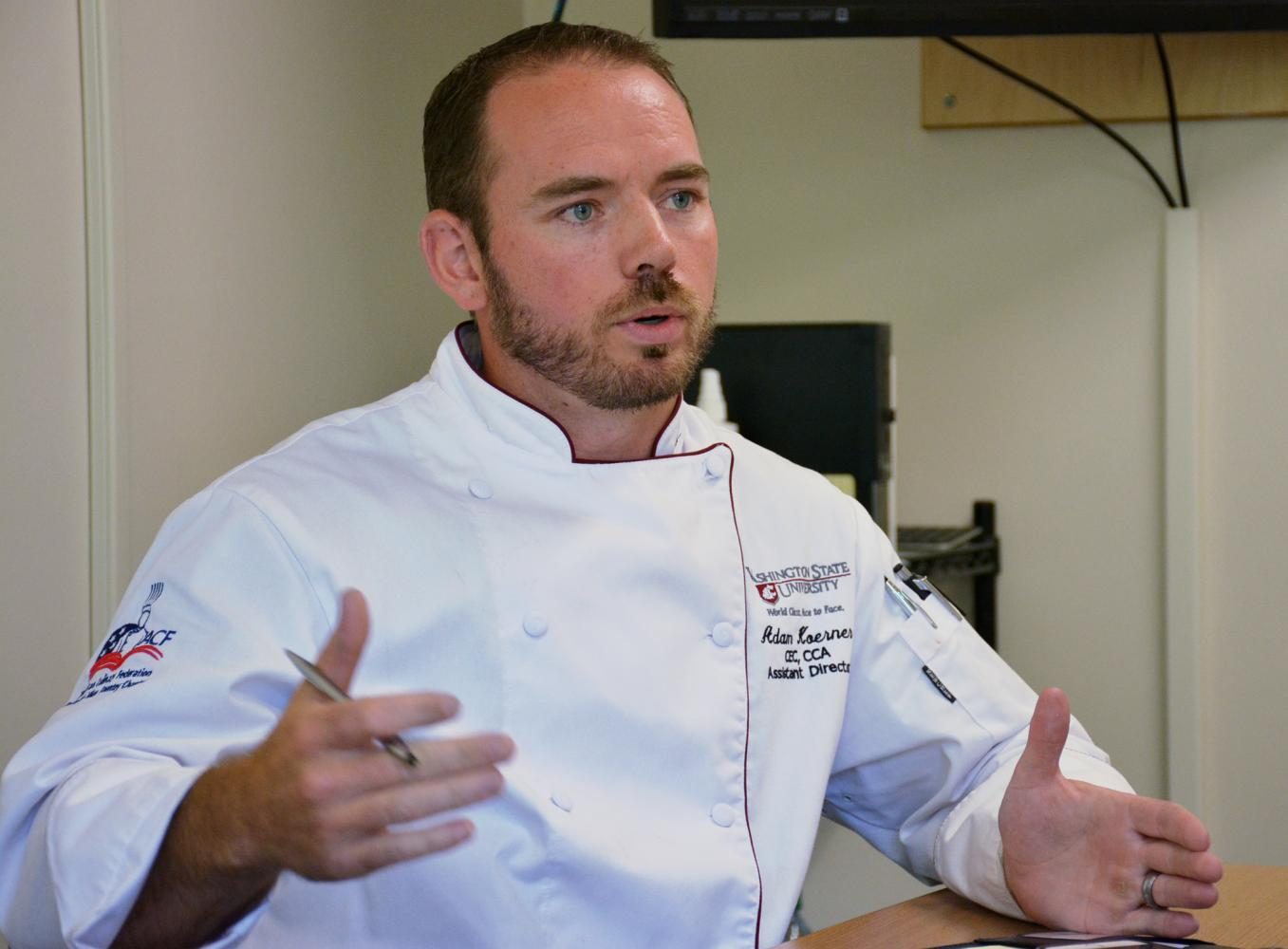A healthy alternative to fast food
Chefs work toward giving students more control of their food
HARRINA HWANG | The Daily Evergreen
Adam Koerner talks about the new plant-based grab-and-go options Friday.
August 30, 2017
WSU Dining Services now offers a new form of grab-and-go snacks called Bites, which are available at all the espresso bars and markets on campus.
Adam Koerner, assistant director of culinary operations, said the previous options for quick meals and snacks had a longer shelf life than Dining Services preferred. The products had lower quality than their previous provider Charlie’s Produce, and the culinary team decided they could do better themselves.
“The idea was ‘let’s do it in-house.’ We can do it better quality the day of,” Koerner said. “And we’ve not only made the quality better, but the price has gone down.”
After a year of planning and another six months of recipe work, Bites now has a greater range of healthier options, and the products are freshly prepared on campus daily, mostly by student employees.
Laurie Kennedy, executive chef of the central production kitchen, said the first phase was not focused on providing plant-based options. They have expanded the range of these healthier options in phase two, and they are now available.
“We were going for more sustainable, local, fresh, healthy food,” Kennedy said. “We wanted to broaden our scope.”
Alice Ma, Dining Services’ registered dietitian, said that a plant-based diet is better for the environment compared to a meat-based diet. It is their job to provide options for students if they wish to contribute to a healthy environment by choosing to eat more plant-based meals.
“[Plant-based diets] are, in general, a lot higher in fruit and vegetables, in fiber, lower in cholesterol and saturated fats compared to a diet that is heavy on meat and dairy,” Ma said.
She said that with added forms of protein such as chickpeas, falafel and tofu, all dietary needs will still be met without a need for meat or dairy.
Diets with higher cholesterol and saturated fats, according to the American Heart Association, lead to a higher risk of heart disease and stroke.
According to the Mayo Clinic, “a high-fiber diet may help reduce the risk of obesity, heart disease and diabetes.”
They have plans to set up sample tables to explain different benefits of certain items that often have a negative stigma, such as tofu, Koerner said.
He also said they love feedback, positive or negative. As they go into phase three, they want to hear what students would like to see in future grab-and-go options.
Kennedy said they care about providing delicious and healthy alternatives, and not all students have the time to sit down.
“One of the biggest complaints that we’ve had in the past is that if people want to eat healthy, it costs more money, and we’re trying to change that,” Koerner said. “Higher quality, higher value, and it’s a healthier option at a lower price.”
















